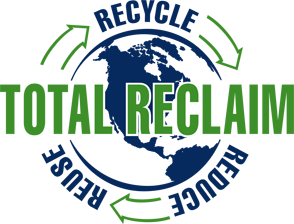The State of E-Waste Recycling in the Pacific Northwest: Challenges and Opportunities
The State of E-Waste Recycling in the Pacific Northwest
E-waste is one of the fastest-growing waste streams in the world—and the Pacific Northwest is no exception. From smartphones and laptops to industrial electronics, our region faces mounting challenges in keeping hazardous materials out of landfills. But with innovation, strong environmental leadership, and companies like Total Reclaim paving the way, there’s a bright future for responsible e-waste recycling in Washington and Oregon.
Why E-Waste Recycling Matters More Than Ever
Electronic waste, or e-waste, refers to discarded electronic devices such as computers, monitors, televisions, and other equipment powered by electricity. These items contain a mix of materials—some highly valuable, like copper, gold, aluminum, and rare earth metals, and others dangerous to the environment, such as mercury, cadmium, and lead.
Improper disposal of e-waste can lead to serious environmental and health risks. Toxic components can leach into soil and groundwater, while burning electronics releases harmful emissions into the air. According to the Global E-Waste Monitor, less than 20% of global e-waste is properly recycled, making this an urgent issue for every community, including those in the Pacific Northwest.
As technology advances faster each year, businesses and consumers are upgrading devices more frequently, creating an ever-growing stream of discarded electronics. This surge underscores the importance of certified, environmentally responsible recycling practices.
Challenges Facing E-Waste Management in the Pacific Northwest
Despite being one of the most environmentally conscious regions in the United States, the Pacific Northwest still faces major e-waste hurdles.
One challenge is accessibility. Many rural communities in Oregon, Washington, and Alaska lack convenient e-waste collection points, leading residents to store unwanted electronics—or worse, dispose of them improperly. Another issue is the cost of responsible recycling. Certified recyclers must follow strict environmental and data security standards, which can make operations expensive compared to illegal or unregulated alternatives.
Additionally, the rapid pace of product innovation means recyclers must constantly adapt to new device designs, materials, and battery technologies. These shifts require advanced equipment and ongoing employee training.
Opportunities for Sustainable Growth and Innovation
Despite the challenges, the Pacific Northwest is also home to some of the nation’s most forward-thinking recycling initiatives. Local governments, manufacturers, and businesses are partnering to improve electronics recovery and reuse. Washington’s E-Cycle program and Oregon’s E-Cycles initiative have made significant strides by providing convenient drop-off sites and requiring manufacturers to participate in take-back programs.
Companies like Total Reclaim play a vital role in this ecosystem. As one of the region’s leaders in environmental services, Total Reclaim offers certified e-waste recycling that ensures compliance with state and federal regulations. By focusing on material recovery, data destruction, and sustainable processing, Total Reclaim helps prevent valuable resources from being wasted while protecting sensitive information.
How Responsible E-Waste Recycling Benefits Local Communities
Responsible e-waste recycling doesn’t just protect the environment—it also strengthens the local economy. Recycling centers create jobs in collection, processing, and materials recovery, supporting green-collar employment across the region. Recovered materials also re-enter the supply chain, reducing dependence on mining and conserving natural resources.
For businesses, proper e-waste management enhances corporate sustainability initiatives and reinforces environmental responsibility. Partnering with certified recyclers like Total Reclaim can also help organizations meet compliance requirements for data security and environmental reporting.
What You Can Do to Make a Difference
Individuals and businesses in the Pacific Northwest can take several steps to reduce e-waste:
Donate or repurpose functioning electronics whenever possible.
Choose certified recyclers that guarantee responsible processing and data security.
Educate employees or community members on proper e-waste disposal options.
Buy products built to last, or with manufacturer take-back programs.
By supporting responsible recycling practices, we can all help the Pacific Northwest maintain its leadership in environmental sustainability. Have questions? Contact Us

